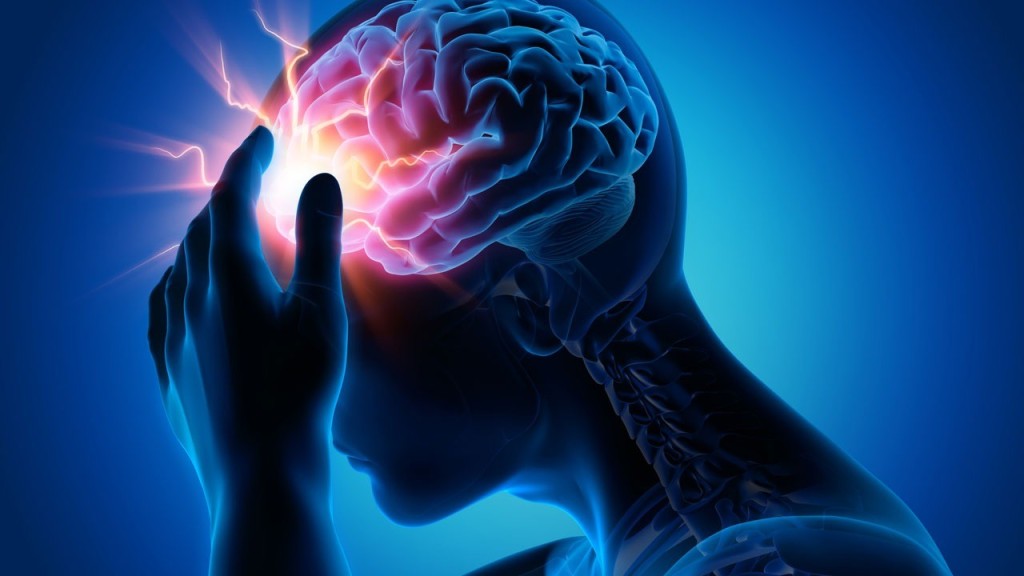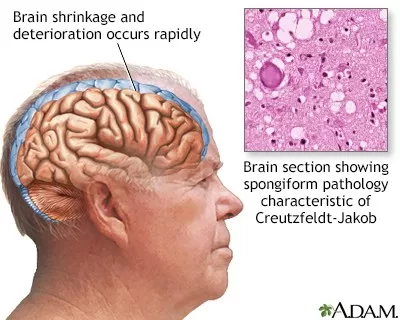Memory loss and amnesia are profound conditions that can dramatically alter the quality of life for both individuals and their loved ones. These issues can arise from a variety of factors, including traumatic brain injuries, psychological stress, and neurological disorders, leading to diverse symptoms and types of memory impairment. Understanding the underlying causes of memory loss is crucial for effective treatment and management, as it can range from short-term lapses to debilitating amnesia. This article will explore the different types of memory loss, the symptoms of amnesia, and the psychological impact of memory loss on individuals and their families. By recognizing these aspects, we can foster a deeper understanding of memory loss treatment options and the importance of compassionate support.
Cognitive decline and amnesia, often referred to in broader terms as memory impairment, encompass a range of conditions that hinder an individual’s ability to recall past experiences or form new memories. This phenomenon can stem from numerous origins, including psychological trauma, neurological diseases, and physiological changes in the brain. Recognizing the signs of memory impairment is essential, as symptoms may vary significantly between different types of cognitive decline. In this discussion, we’ll delve into the various forms of memory impairment, explore their causes, and highlight effective strategies for managing the emotional ramifications of these challenging conditions. By enhancing our understanding of cognitive decline, we can better support those affected and promote awareness of the available treatment options.
Understanding the Causes of Memory Loss and Amnesia
Memory loss and amnesia can be attributed to a variety of factors that impact cognitive function. Traumatic brain injuries, such as those resulting from falls or accidents, can lead to immediate and often severe memory issues. These injuries disrupt neural pathways essential for memory recall and storage, making recovery challenging. Furthermore, neurological diseases like Alzheimer’s and dementia progressively deteriorate brain health, resulting in both short-term and long-term memory loss. Understanding these causes is crucial for determining the appropriate treatment and support needed for individuals affected by these conditions.
In addition to physical injuries and neurological disorders, psychological factors play a significant role in memory loss. Conditions such as severe stress, anxiety, and depression can lead to cognitive impairments, creating a cycle where emotional distress exacerbates memory problems. Substance abuse is another critical factor, as excessive use of alcohol or drugs can impair brain function, leading to memory lapses and, in some cases, long-term amnesia. Recognizing the multifaceted causes of memory loss enables a more holistic approach to treatment that addresses both physical and psychological needs.
Recognizing the Symptoms of Amnesia
Amnesia presents itself through distinct symptoms that can vary based on the type and severity of the condition. Common symptoms include difficulty recalling recent events or forming new memories, particularly in cases of anterograde amnesia, where the individual struggles to retain information learned after the onset of their condition. Individuals may frequently ask the same questions or become confused about time and place, which can significantly disrupt daily life. Recognizing these symptoms early on is essential for seeking appropriate medical advice and intervention.
Retrograde amnesia, on the other hand, is characterized by the loss of memories formed before the traumatic event. Individuals may forget significant life experiences, which can create emotional distress and impact relationships with family and friends. Awareness of these symptoms is crucial, as they can often signal underlying health issues that require professional evaluation. By understanding the symptoms of amnesia, caregivers and loved ones can provide better support and help the affected individuals navigate their challenges.
Exploring the Psychological Impact of Memory Loss
The psychological impact of memory loss and amnesia can be profound, affecting both the individual and their loved ones. Feelings of frustration, confusion, and helplessness are common among those experiencing memory issues, as they struggle to connect with their past and maintain relationships. The emotional toll can lead to isolation and depression, further complicating recovery and management. Understanding the psychological aspects of memory loss is vital for providing comprehensive care and support.
Additionally, the effects of memory loss extend beyond the individual to their families and friends, who may experience grief and frustration as they witness a loved one’s cognitive decline. Support systems play a crucial role in mitigating these effects; engaging in open communication and fostering a nurturing environment can alleviate emotional distress. By addressing the psychological impact of memory loss, individuals and their families can work together to create coping strategies and seek professional support when necessary.
Treatment Options for Memory Loss
While complete recovery from memory loss or amnesia may not always be feasible, various treatment options are available to help manage symptoms and improve cognitive function. Cognitive rehabilitation therapy is one effective method, involving targeted exercises designed to enhance memory retention and recall. These therapies can help individuals rediscover lost skills and adapt to their memory challenges, ultimately promoting greater independence.
In addition to cognitive rehabilitation, lifestyle changes can significantly affect memory health. A nutritious diet rich in antioxidants, regular physical exercise, and adequate sleep all contribute to overall brain function. Furthermore, support from healthcare professionals, including neurologists and psychologists, can provide tailored guidance and strategies to address individual needs. By exploring these treatment options, individuals experiencing memory loss can find a path toward improved cognitive health and quality of life.
Recent Research and Insights into Memory Disorders
Recent research into memory loss and amnesia has highlighted the intricate relationship between cognitive decline and various medical conditions. Studies have shown that memory disorders can signal broader health concerns, such as cognitive decline associated with aging or specific neurological conditions. For instance, research linking multiple sclerosis with memory loss emphasizes the need for comprehensive treatment approaches that consider both neurological health and cognitive function.
Moreover, ongoing studies continue to explore innovative interventions that may enhance memory retention and cognitive abilities. Potential therapies include pharmacological treatments aimed at improving brain health and cognitive function, as well as lifestyle interventions that promote mental engagement and emotional well-being. By staying informed about recent insights into memory disorders, patients and caregivers can better navigate the complexities of these conditions and seek the most effective treatment options.
Frequently Asked Questions
What are the common causes of memory loss and amnesia?
The common causes of memory loss and amnesia include traumatic brain injuries, neurological diseases like Alzheimer’s, psychological factors such as stress and depression, substance abuse, and certain medical conditions. Understanding these causes is crucial for effective treatment and management.
What are the symptoms of amnesia and how do they differ from general memory loss?
Symptoms of amnesia often include a marked inability to recall past experiences or form new memories, while general memory loss may involve forgetfulness of recent events or difficulty recognizing familiar people. It’s essential to identify these symptoms for appropriate diagnosis and treatment.
What types of memory loss exist and how are they classified?
Memory loss can be classified into short-term memory loss, long-term memory loss, and amnesia. Short-term memory loss affects recent information recall, long-term memory loss involves the inability to remember stored life events, and amnesia specifically refers to the loss of memory due to brain damage.
What treatment options are available for memory loss and amnesia?
Treatment options for memory loss and amnesia include cognitive rehabilitation exercises, professional therapy, lifestyle changes such as a healthy diet and regular exercise, and emotional support systems. Consulting healthcare professionals can help tailor effective treatment plans.
What is the psychological impact of memory loss and how can it affect individuals?
The psychological impact of memory loss can lead to feelings of grief, isolation, frustration, and anxiety. Individuals may struggle with their identity and relationships due to lost memories, making emotional support and coping strategies vital for their well-being.
| Key Points | Details |
|---|---|
| Definition of Memory Loss | Inability to remember information, experiences, or specific events. |
| Types of Memory Loss | 1. Short-Term Memory Loss: Affects memory for brief periods (e.g., forgetting where you left keys). 2. Long-Term Memory Loss: Involves loss of memories stored for longer (e.g., significant life events). 3. Amnesia: Marked inability to recall past experiences or form new memories. |
| Types of Amnesia | 1. Anterograde Amnesia: Inability to form new memories after the onset. 2. Retrograde Amnesia: Loss of memories before a specific event. 3. Transient Global Amnesia: Temporary, sudden memory loss lasting a few hours. |
| Causes | – Traumatic brain injury – Neurological diseases (e.g., Alzheimer’s) – Psychological factors (stress, depression) – Substance abuse – Medical conditions (e.g., multiple sclerosis) |
| Symptoms | – Repeatedly asking the same questions – Confusion about time/place – Difficulty focusing or following conversations – Mood changes (irritability, anxiety) – Increased reliance on reminders |
| Emotional Impact | Can lead to grief, isolation, frustration, and helplessness for both individuals and loved ones. |
| Management Strategies | – Cognitive rehabilitation and memory exercises – Healthy lifestyle choices (diet, exercise, sleep) – Support systems and emotional support – Professional guidance for tailored strategies |
Summary
Memory loss and amnesia are complex conditions that significantly affect individuals and their families. Understanding the various types of memory loss, including short-term and long-term memory loss as well as specific forms of amnesia, is crucial for providing the necessary support. The causes range from traumatic injuries to psychological factors, and the symptoms can manifest in many ways, impacting daily life. By recognizing the emotional toll these conditions can take, we can better appreciate the importance of management strategies such as cognitive rehabilitation, healthy living, and professional support. Continued research into memory disorders offers hope for more effective interventions in the future.
The content provided on this blog (e.g., symptom descriptions, health tips, or general advice) is for informational purposes only and is not a substitute for professional medical advice, diagnosis, or treatment. Always seek the guidance of your physician or other qualified healthcare provider with any questions you may have regarding a medical condition. Never disregard professional medical advice or delay seeking it because of something you have read on this website. If you believe you may have a medical emergency, call your doctor or emergency services immediately. Reliance on any information provided by this blog is solely at your own risk.







